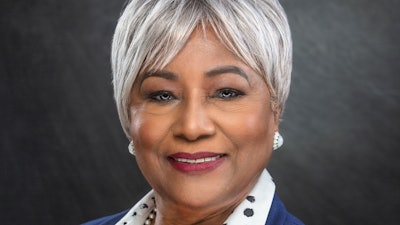 Dr. Christine Johnson McPhail
Dr. Christine Johnson McPhail
When thinking about the role we all have in shaping our future, I need to lift up the role that Historically Black Colleges and Universities (HBCUs) have in shaping a more equitable future. I believe that, of all the affinity groups in the world, HBCUs are the world’s most experienced and capable engines for equity.
HBCUs have earned a reputation for providing students, especially Black students, with a transformational college experience. An experience that is grounded in culture and leads to personal empowerment, professional opportunities, and vast career networks. This experience equips them to become leaders who transform the workplace, communities, and the world.
The HBCU tradition of preparing transformational leaders is remarkable in that we often serve students who are disenfranchised and offer them an experience that prepares them to soar. A recent report, HBCUs Transforming Generations: Social Mobility Outcomes for HBCU Alumni, by UNCF (2021) notes the following:
HBCUs serve more economically disenfranchised students than most U.S. institutions. The percentage of HBCUs that educate low-income students compared to the nationwide average is nearly 30% higher. Compared to other institutional types, HBCUs’ average access rate is more than twice that of all institutions nationwide and five times that of “Ivy Plus” institutions. These access rates reflect that more than 70% of HBCU students are Pell Grant-eligible, and 39% are first-generation college students. On average and across institution types, when it comes to mobility rates, HBCUs outperform all other categories. They are double the national rate, the primary post-secondary driver for moving Black Americans from poverty to the middle class.
From the Rev. Dr. Martin Luther King Jr. to U.S. Vice President Kamala Harris, both educated at HBCUs, these institutions are perfecting a process for getting the absolute best out of students that many refer to as disenfranchised.
I urge those looking to advance equity to embrace opportunities to make substantial investments in HBCUs and partnerships that scale HBCUs to prepare the disenfranchised to succeed.
![Sm 7791 Soft Final[273284]](https://img.diverseeducation.com/files/base/diverse/all/image/2023/02/SM__7791_soft_final_273284_.63f03279efba2.png?auto=format%2Ccompress&crop=faces&fit=crop&h=48&q=70&rect=0%2C54%2C1920%2C1920&w=48)




















